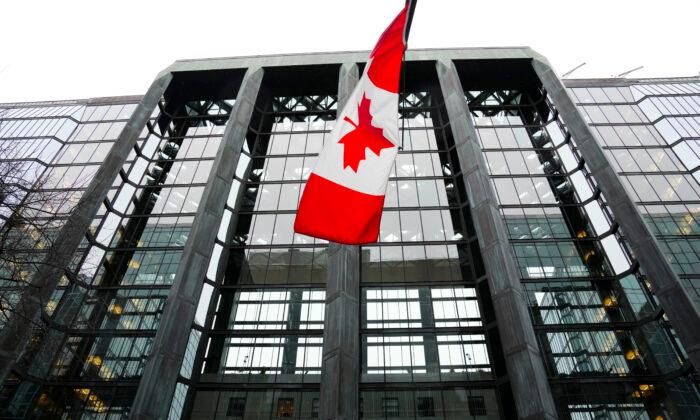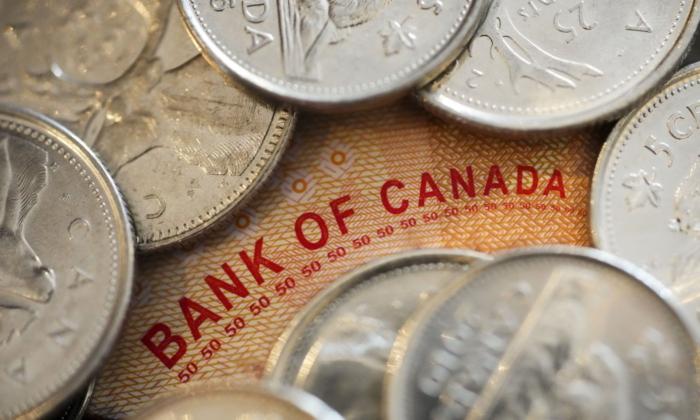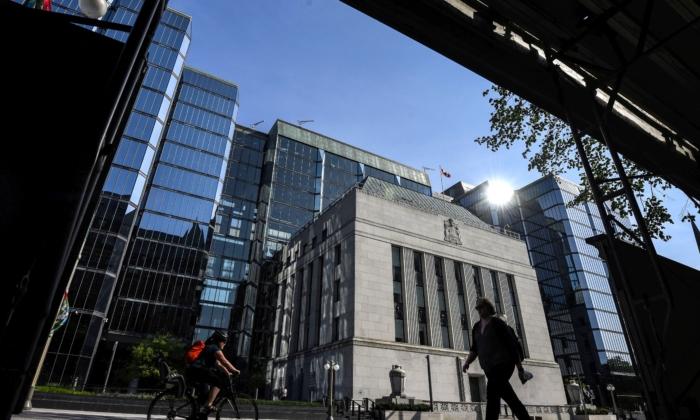A trio of economy-related questions being asked as the calendar turns to 2023 are, how bad will the potential recession be, by how much will inflation come down, and will the Bank of Canada have to start cutting interest rates?
A recession for an open, medium-sized economy like Canada’s seems unavoidable given that a full 4 percentage points of rate hikes in 2022 hasn’t yet fully taken effect, and as RBC assistant chief economist Cynthia Leach points out—the United States, China, and the European Union, which represent half of the global gross domestic product, are already heading for recession or slow growth in 2023.
However, Leach says that as the recession hits in early 2023, the bar is high for the Bank of Canada to start cutting rates.
“But as the year brings further output losses, unemployment, and easing core inflation, the bank will need to start considering taking the leap late in the year,” she said in a Dec. 8 report.
Worse Recession for Canada?
Tony Stillo, director of Canada Economics at Oxford Economics, says the housing downturn will doom Canada to a worse recession than most of its peers and one that will last for much of 2023.
Canada’s housing market has long featured the toxic combination of highly indebted households and overvalued housing. The Bank of Canada has frequently warned that rising unemployment could lead to major losses in housing markets, and Stillo says prices are forecast to fall 30 percent.
The Canadian Real Estate Association reported that the actual national average sales price fell 12 percent year-over-year in November.
Former RBC CEO Gord Nixon told BNN Bloomberg he’s very negative on real estate, with an additional consideration being that households’ net worth has declined, with house prices coming down combined with a dire year for stocks and bonds.
But the good thing is that economists are saying that given the strength in the labour market, the loss of jobs will be mild compared to prior recessions.
RBC says labour shortages are still a bigger issue than lack of hiring demand. Wage growth was accelerating at 5.6 percent per annum in November.
Pierre Ouimet, head investment strategist at UBS Canada, told BNN Bloomberg on Dec. 23 that a benign recession doesn’t really exist and that the 2023 recession will be longer than what most are expecting due to less ability for the government and central bank to bail out the economy.
“The reason for that is the amount of debt and the ineptitude of governments—basically [they] don’t have any room to manoeuvre to provide any fiscal stimulus. And I don’t think the central banks are going to go back to quantitative easing either,” he said.
Along with raising rates, the BoC is letting government bonds it bought to support federal spending—known as quantitative easing—mature without reinvesting the proceeds in more government bonds. These are uncharted waters for the bank—to avoid a recession while raising short-term rates and exerting upward pressure on longer-term rates.
“Living in a new regime,” Ouimet called it, saying that going back to significantly lower interest rates is a “little bit of a folly.”
Loonie and Energy
The BoC in December altered its stance to indicate that rates may not need to rise further; however, this diverges from the U.S. Federal Reserve, and that has implications for the Canadian dollar. Economists forecast either one or zero rate hikes for the BoC in 2023.
The Fed is expected to raise rates more than the BoC is in 2023, but the end of U.S. rate hikes is also coming into view, says BMO chief economist Doug Porter.
The U.S. dollar was one of the top financial markets stories of 2022, given its strength for the first nine months of the year. At the end of September, it was at a 20-year high and up 19 percent year-to-date.
Porter says, as the U.S. dollar weakened in the fourth quarter, he expects that trend to continue and the loonie to “modestly benefit.” That would be a mild disinflationary force.
Energy emerged in 2022 as a bit of a battleground as renewable energy plans had to be put on hold to deal with the immediacy of a potential energy crisis in Europe. Fossil fuel prices soared and energy was one of the sectors in equity markets that shone, and Canada’s economy benefited—though much less than it could have due to lower business investment.
Crude prices are expected to rise next year, according to Amrita Sen, head of research at Energy Aspects.
She told CNBC on Dec. 23 that prices had fallen due to lockdowns in China and to the United States tapping its strategic petroleum reserve.
But she said that China remains the biggest driver of demand and that with lockdowns ending, demand will be massive and have a multiplier effect throughout the Asian region.
“You’re going to see a feedback loop right through the world once China does open up,” she said.
Beyond 2023 and Cutting China Out
With supply chain bottlenecks becoming a driver of higher inflation along with Russia’s invasion of Ukraine in 2022, Canada and its allies endeavoured to fortify supply chains—something being dubbed “friendshoring” or “near-shoring.”
But steering clear of low-cost producers in a less globalized world means one of the drivers of lower inflation will be less impactful going forward.
“Greater geopolitical tensions and a backlash in some areas against globalization will make it harder to bring inflation down and keep it there,” according to a summary of Bank of Canada Governor Tiff Macklem’s speech to the Business Council of B.C. on Dec. 12.
It has become clear to policy-makers even more so in 2022 that western democracies cannot continue to rely on China, which holds dominant positions in critical minerals and active ingredients for pharmaceuticals.
Nixon said the bifurcation of the global system between traditional western allies and China is only going to grow, which will put more pressure on supply chains and friendshoring—and upward pressure on inflation.
And one of those supply chains under development in Canada is one for batteries. But it has to deal with the additional hurdle of China’s dominant position.
“We can’t live in a world where the West and we are dependent upon rare earths from China. We’ve got an opportunity to develop things like rare earths in this country. Energy is an obvious one,” Nixon said.





